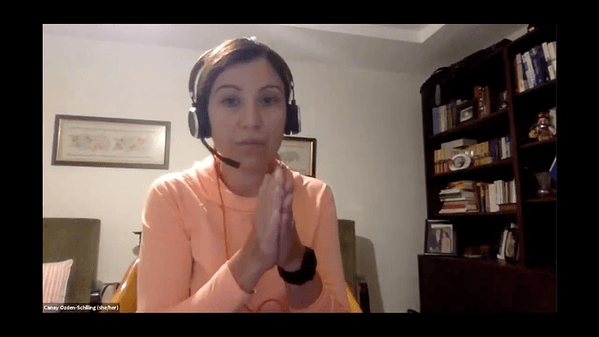Would you like to see your presentation here, made available to a global audience of researchers?
Add your own presentation or have us affordably record your next conference.
keywords:
middle east
disaster
ethnography
Over the past year, Lebanon has endured compounding financial, political, and social crises that have forced anthropologists, whether due to personal hardships or changes to field sites, to change their orientation to the discipline and practices of ethnography. Following the popular mass uprising of October 2019, Lebanon has witnessed a continued economic collapse, political instability, the Covid-19 pandemic, and the massive explosion at the Beirut Port in August 2020, all of which have impacted the way that anthropologists engage with their research topics and interlocutors. All of this has led to unpayable university tuitions, the loss of salaries of faculty and staff, and increased precarity for ethnographers••and local researchers in particular••working on the ground. Further, Lebanese security forces continue to use excessive force, try civilians in military courts, and prosecute activists for speech acts, stifling the forms of resistance and cooperation available to both local and foreign researchers. Despite Lebanon’s comparatively small size, its contested landscape has long helped anthropologists to understand the necessity of historicizing sociopolitical categories like “sect” in order to stress their modern politicization and mobilization in the midst of competing nationalisms. Lebanon has also offered a window into the ways in which gendered discourses of citizenship come to produce particular and limited understandings of the nation and citizenship. In recent decades, Lebanon had served as a place of tenuous refuge for well over a million Syrian, Palestinian, and Iraqi refugees, further increasing the presence of international researchers seeking to untangle networks of kinship, political economy, and access to health and education in forced exile. Indeed, regional displacements and disasters have centered Lebanon as a particularly generative location for research into crises, their histories, and their aftermaths. Building on this year’s meeting theme “Truth and Responsibility,” this roundtable explores the ways that the intersecting crises in Lebanon have altered anthropological orientations to ethnographic research. Participants will consider the ways that the needs, aspirations, and lived realities of our respective interlocutors•as well as our own positionalities•have changed or evolved in the context of Lebanon’s compounded disasters. What forms of justice and solidarity can anthropological research foster in the absence of accountability for ongoing economic breakdown and political repression? How can international anthropologists support and stand in solidarity with those primarily affiliated with Lebanese institutions? And how can insights about anthropological practice gained in Lebanon travel in a world witnessing an alarming rise in ecological disasters, xenophobic nationalist rhetoric, unbridled neoliberalization of educational institutions, and mass, involuntary migration?

